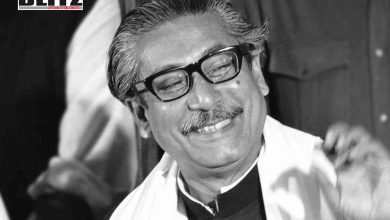Simone de Beauvoir: Icon Who Shaped Freedom’s Rise
Unveiling the fearless mind behind feminism’s bold awakening

A Rebel Born in Paris
On January 9, 1908, in Paris’s bustling 6th arrondissement, Simone Lucie Ernestine Marie Bertrand de Beauvoir entered the world, destined to become a titan of thought. Born to a bourgeois family teetering on financial ruin after World War I, Beauvoir’s early life was no cradle of privilege. Her father, Georges, a lawyer with theatrical dreams, and her mother, Françoise, a devout Catholic, raised her in a world of strict convention. Yet, young Simone’s mind burned with questions. By age 14, she rejected Catholicism, embracing atheism and a hunger for truth that would define her life. Her father’s praise, “Simone thinks like a man!” fueled her drive, though it hinted at the gendered barriers she’d later dismantle.
At the Sorbonne in 1926, Beauvoir dove into philosophy, her intellect blazing. In 1929, at just 21, she became the youngest person ever to pass the grueling agrégation in philosophy, placing second only to Jean-Paul Sartre, her lifelong partner. This feat wasn’t just academic—it secured her financial independence, a rare triumph for a woman of her time. Her meeting with Sartre sparked a partnership that would redefine existentialism and ignite feminist thought worldwide.
The Spark of The Second Sex
In 1949, Beauvoir unleashed The Second Sex, a 972-page masterpiece that shook the foundations of patriarchal society. Translated into 40 languages, it sold millions, becoming a cornerstone of modern feminism. Beauvoir’s bold claim, “One is not born, but rather becomes, a woman,” challenged the myth of the “eternal feminine” and exposed how society constructs gender to oppress. The Vatican banned it, and critics like François Mauriac branded it pornography, yet its raw truth fueled the second-wave feminist movement. Betty Friedan, whose 1963 The Feminine Mystique sparked U.S. feminism, credited Beauvoir’s work as her philosophical anchor.
Beauvoir’s research was relentless. She interviewed dozens of women, weaving their lived experiences into a searing critique of patriarchy’s roots in science, history, and culture. Her existentialist lens—rooted in thinkers like Hegel, Husserl, and Marx—framed women as the “Other,” denied agency in a male-defined world. By 2025, The Second Sex remains a global touchstone, studied in universities and cited by scholars like Judith Butler and Sara Ahmed. Its ideas ripple through gender studies, shaping debates on equality and identity.

A Life of Defiant Freedom
Beauvoir’s life was as radical as her words. Her open relationship with Sartre, begun in 1929, defied convention. They rejected marriage, cohabitation, and monogamy, choosing instead a bond of intellectual and emotional loyalty. This pact allowed Beauvoir to explore relationships with others, including women, though it wasn’t without pain. Her diaries, released posthumously, reveal moments of jealousy and emotional struggle, yet she never wavered in her commitment to personal freedom. Critics, like those in a 2019 Guardian article, note the ethical complexities of her and Sartre’s relationships, but Beauvoir’s insistence on autonomy shaped her feminist ethos.
Her activism matched her philosophy. In 1971, Beauvoir penned the Manifesto of the 343, rallying 343 women to admit to illegal abortions, pushing France toward legalizing birth control and abortion. This courageous act, reported by The Decision Lab, transformed reproductive rights and cemented her as a political force. She also co-founded Les Temps Modernes, a journal with Sartre, amplifying existentialist and feminist ideas. Her travels—to the U.S., China, and beyond—produced works like America Day by Day (1948), critiquing materialism and inspiring global dialogue.
Literary Giant and Global Voice
Beauvoir’s pen was her sword. Beyond The Second Sex, she wrote novels, essays, and memoirs that captivated the world. Her 1954 novel The Mandarins won the prestigious Prix Goncourt, a rare honor for a woman, and explored the moral dilemmas of post-World War II intellectuals. Her four-volume autobiography—Memoirs of a Dutiful Daughter (1958), The Prime of Life (1960), Force of Circumstance (1963), and All Said and Done (1972)—offered an unflinching look at her life, loves, and losses. A Very Easy Death (1964) and Old Age (1970) tackled mortality and society’s neglect of the elderly, showing her range.
Her global impact was undeniable. The Jerusalem Prize in 1975 honored her for championing individual freedom, a testament to her influence beyond feminism. By 1986, when she died at 78, her works had been translated into dozens of languages, reaching millions. Gloria Steinem called her “an authentic heroine,” and The New York Times hailed her as a defining voice of her era. Even today, her books sell steadily, with The Second Sex alone selling over 1 million copies in English by 2020.

Controversies and Courage
Beauvoir wasn’t flawless. In the 1940s, she faced accusations of inappropriate relationships with students, leading to a brief teaching suspension. Her and Sartre’s support for controversial causes, like decriminalizing statutory rape, drew backlash, as noted in a 2025 Philosophers’ Magazine post. Her stance on motherhood—viewing it as societal oppression—also sparked debate, with some feminists arguing it dismissed women’s choices. Yet, Beauvoir’s willingness to confront her own contradictions, as seen in her later writings, showed her integrity. She evolved, calling out sexism even in her own life, as The Guardian reported in 2019.
Her embrace of Marxism and criticism of French colonialism, per Tameri, made her a polarizing figure. She and Sartre opposed France’s role in Vietnam and Algeria, influencing anti-colonial movements. Some criticized her communist sympathies, but her commitment to justice never wavered. These controversies, far from dimming her star, highlight her fearlessness in challenging power.
Legacy Now
As of May 27, 2025, Beauvoir’s legacy burns bright. Simone de Beauvoir Studies, a peer-reviewed journal founded in 1983, thrives with over 185 global members, publishing cutting-edge work on gender, existentialism, and activism. The International Simone de Beauvoir Society fosters scholarship, proving her ideas remain vital. Her influence echoes in modern thinkers like Manon Garcia and Kate Kirkpatrick, who, per the Library of Congress, champion Beauvoir as a philosopher in her own right, not just Sartre’s partner. Social media reflects her enduring relevance: a 2025 X post by @HumbleFlow praises The Second Sex for its piercing questions, while @jacobin highlights her Marxist-feminist vision.
Universities worldwide teach her works, and her ideas shape fourth-wave feminism, addressing workplace harassment and gender parity, as noted by Hindustan Times in 2018. Her concept of “situated freedom”—that agency is constrained but never erased—resonates in debates on systemic inequality. In France, Place Jean-Paul-Sartre-et-Simone-de-Beauvoir, a rare square named for a couple, stands as a physical testament to her impact. Beauvoir’s call for equality inspires activists globally, from #MeToo to grassroots movements in India and beyond.
A Beacon for All Time
Simone de Beauvoir didn’t just write—she ignited a revolution. Her fearless intellect tore down myths, giving women the tools to claim their humanity. From passing the agrégation at 21 to penning The Second Sex, she lived as she preached: free, bold, and unapologetic. Her 78 years left an indelible mark—millions of books sold, countless minds awakened, and a world forever changed. Today, her words challenge us to question, resist, and create. Stay sharp with Ongoing Now 24.





